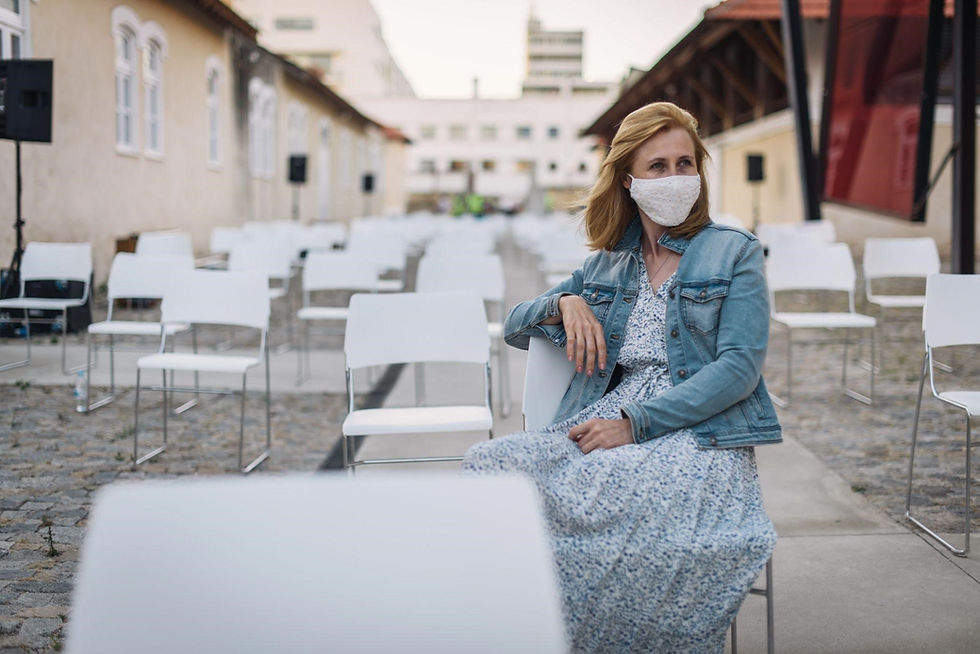The Negative Effects of Social Isolation
- Kayjah Taylor
- Dec 6, 2022
- 2 min read
Updated: Mar 8, 2025

Social relationships are a key part of our lives. Our daily, social interactions help to shape our everyday lives, and while “positive social relationships are protective for health, a wealth of evidence has shown that weak social relationships are associated with a wide variety of adverse health outcomes” [1].
Social isolation can loosely be defined as a lack of social contact, which means that a person will have very few people they contact on a regular basis. Many of those with social isolation have been found to be part of the elderly community. COVID-19 has raised concerns for those who are experiencing the negative symptoms of social isolation. For example, COVID-19 has presented a threat to those in nursing homes. The elderly that reside in nursing homes thrive off of getting visitors and engaging in group activities. When the pandemic first started, this was a dilemma that nursing homes struggled with. Restrictions meant that there were no face-to-face interactions with visitors or loved ones, and there were attempts to replace these interactions with voice and video calls, but only some nursing homes had enough staff to carry out these actions. The antidote for this became more prescriptions, as depression started to increase among patients. These included antidepressants, antipsychotics, and anxiolytics [2].
Social isolation can also affect those who are “single, living alone, having a weak or small social network and infrequency of social interactions” [1]. These types of situations have also increased due to the pandemic. Some of the more common mental health disorders include “anxiety and panic, obsessive-compulsive symptoms, insomnia, digestive problems, as well as depressive symptoms and post-traumatic stress” [3]. These disorders can come as a result of isolation, as they affect both physical and emotional health.
It is important for us to maintain a certain level of social interaction, whether it is with family, friends, or partners. It is good to know that humans are flexible, and we do have the ability to adjust to our environments as needed. Still, that doesn’t mean we have to be strong all by ourselves. It will always be a good time to reach out.
References:
1. Ge L, Yap CW, Ong R, Heng BH. “Social isolation, loneliness and their relationships with depressive symptoms: A population-based study.” PLoS One. 2017 Aug 23;12(8):e0182145. doi: 10.1371/journal.pone.0182145. PMID: 28832594; PMCID: PMC5568112.
2. Abbasi J. Social Isolation—the Other COVID-19 Threat in Nursing Homes. JAMA. 2020;324(7):619–620. doi:10.1001/jama.2020.13484
3. Pietrabissa, Giada, and Susan G. Simpson. "Psychological Consequences of Social Isolation During Covid-19 Outbreak." [In English]. Perspective. Frontiers in Psychology 11 (2020-September-09 2020). https://doi.org/10.3389/fpsyg.2020.02201.
Contributors:
Author: Kayjah Taylor
Editor: Liam Lynch
Health scientist: Catherine Sarwat
_edited.jpg)



Comments